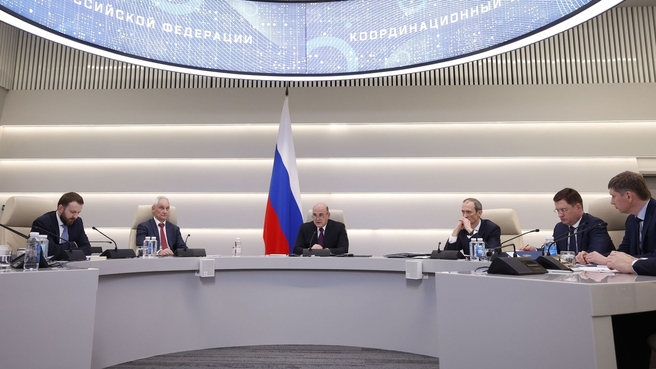Mikhail Mishustin’s opening remarks:
Good afternoon, colleagues.
Today, let us take a look at the current state of the economy, including industry, transport and other sectors. We will also look at the implementation of the President's instructions and the parameters of the socio-economic development forecast until 2025.
The main objective is to strengthen the dynamics of our country's development, taking into account external challenges. Today, we will discuss what additional measures are needed to achieve this.
Last year, more than 300 measures were taken as part of the plan to support the economy amid sanctions. We have implemented quite a number of projects. We are also monitoring the progress of national projects, strategic initiatives aimed at solving the long-term tasks that have been defined by the President. Other state programmes were also carried out.
All of this has yielded positive results, which are noticeably better than many forecasts made by various experts. We managed to prevent a negative scenario and to significantly reduce the inevitable slowdown in such harsh conditions. Most importantly, we have provided support to our citizens and the most vulnerable segments of our economy in this difficult period.
According to Rosstat, the decline in industrial output was negligible at less than 1 percent with many industries that focus on the domestic market, such as the pharmaceutical industry, agriculture, the production of finished metal products, construction, clothing, computers, electronics and optics, showing growth.
By the end of the year, the unemployment rate fell to a historic low.
Annual inflation was under 12 percent, which is better than many European countries had to show.
These results have been assessed by foreign experts.
Advanced funding for infrastructure construction was one of the key goals that the President set at a meeting of the Council for Strategic Development and National Projects. We discussed this issue in detail in January at a meeting with the President.
We should team up with the regions and pick priority facilities which we can build ahead of schedule this year and before the end of the first quarter of 2024. This includes social, transport and other facilities which make it possible, primarily, to make the lives of our people more comfortable.
We also need to implement mechanisms for advanced financing of infrastructure construction, such as treasury loans to the regions on account of the inter-budget transfers that are envisaged for subsequent years.
The Finance Ministry, in conjunction with the Ministry of Construction, should act swiftly to draft the necessary amendments to the budget legislation.
We will ask our colleagues, the deputies, to pass them in the first quarter so that we can effectively use this tool as soon as this year.
We are working on other presidential instructions with account taken of new goals and challenges. One of them is to achieve a balance between the investment programme and the financial plan of Russian Railways.
We are also working on technical solutions and a financial model to build the Dzhubga-Sochi motorway, which is important for promoting domestic tourism. This year we plan to start working on the first phase, which includes a bypass around Adler.
The five-year roadwork plan has almost 74 billion roubles allocated for these purposes.
These changes will need to be taken into account when discussing possible adjustments to the forecast for the next three years.
We should focus our efforts on the smooth resumption of economic growth.









